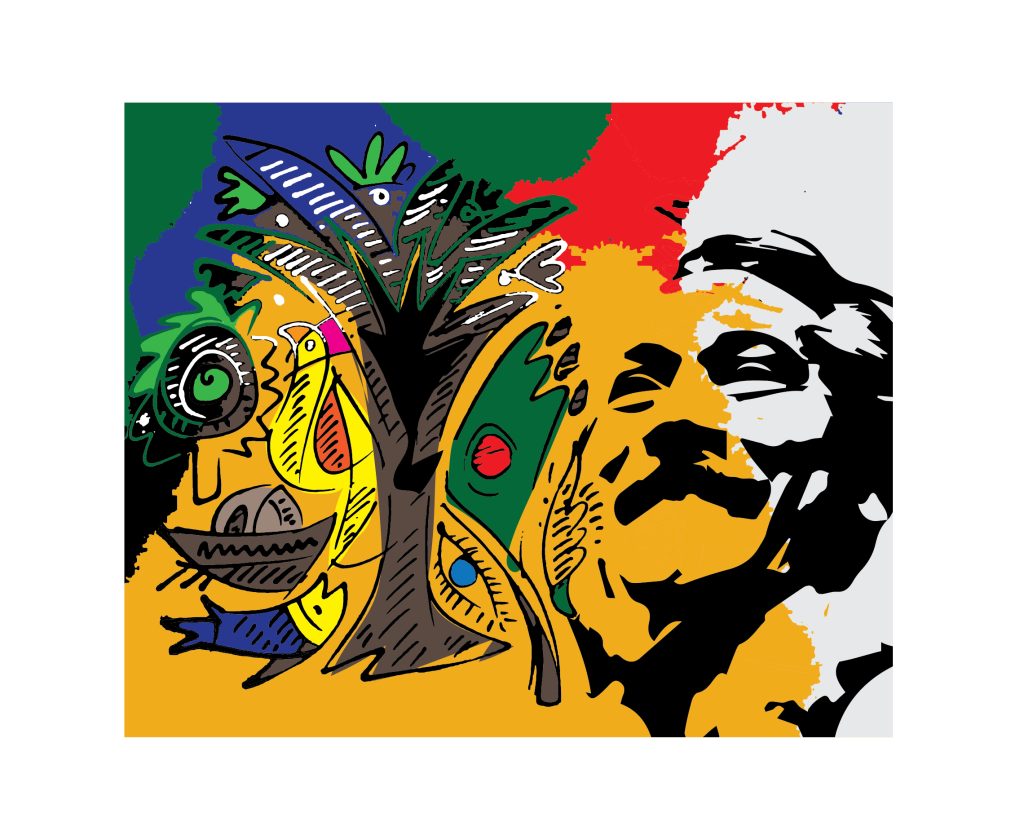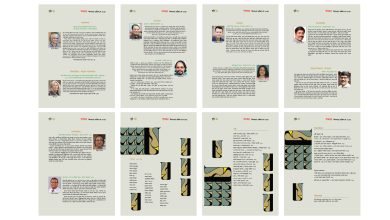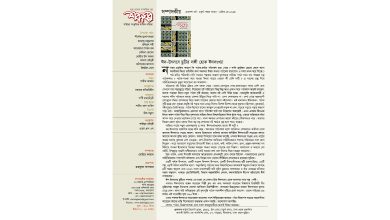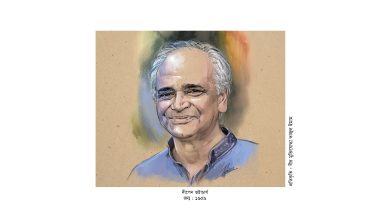Essay : The Unfinished Memoirs by Sheikh Mujibur Rahman : The Book that Calls for Revisiting History : Mofidul Hoque

‘Manuscripts do not burn’, is an oft-quoted saying from the book Master and Margarita by the celebrated Russian author Mikhail Bulgakov. His manuscripts have gone through many ups and downs and finally saw the light of the day long after the death of its author. The manuscripts have a strength of its own, it can remain hidden, it can be suppressed but it will never burn, rather it illuminates when it gets published after many years, maybe decades of oblivion. The fate of Bangabandhu Sheikh Mujib’s prison notebooks narrating his experience of life has a story of its own. Its survival and ultimate publication is amazing. Sheikh Mujib was in and out of prison throughout the turbulent times of Pakistan. He was in prison for 13 years out of 23 years of Pakistan. When Sheikh Mujib announced the Six-point program as a charter of freedom for the Bengali people, the military dictator General Ayub Khan rightly understood that the greatest threat to his rule and dominance of West Pakistan over the land of Eastern Bengal will come from this charismatic and uncompromising leader of the Bengali people. Mujib was arrested on 8 May 1966 after a rally he addressed at Narayanganj. He rightly prepared for a long stay in jail and that proved true. At this time, his wife Begum Fazilatunnesa Mujib handed over an exercise book to him to write down his memoirs.
The importance of Mujib’s trilogy can be explained in many ways but here we would like to focus on a particular period of history and how young Sheikh Mujib confronted the reality with action and outlook that made deep impact in his life. The period was a dark period in the history of the Indian sub-continents with Hindu-Muslim riot erupted in August 1946, known as the `Great Calcutta Killing’. It was followed by the riot in the villages of Noakhali, deep inside rural Bengal. The conflict then spilled over to Bihar, ultimately leading the political leaders and colonial rulers to decide to divide India on religious line.
Sheikh Mujibur Rahman came to Kolkata in 1940 to get enrolled in the then Islamia College as a student of intermediate class. He earned Bachelor of Arts degree from the same college in early 1947. He showed his leadership capability in these years and was elected the General Secretary of the students union of the college for consecutive terms.
Most of the historians branded Sheikh Mujib as a young activist of the Muslim League and a promising leader of the All Bengal Muslim Student’s League, as an ardent supporter of Pakistan movement. But one should also ask the question which Muslim League he belonged to and what was his idea of Pakistan. He was a disciple of Husyen Shahid Suhrawardy and belonged to Suhrawardy – Abul Hashim faction opposed to the conservative and communal views Khawaja Nazimuddin group.
In 1946 general election Mujib worked very hard to ensure the victory of the ML candidates. Muslim League won majority seats in Bengal but failed in Punjab as in the Sind. The election was considered as a referendum to create Pakistan, based on the Lahore Resolution of 1940. Due to the frenzy of the electoral battle and failure of the nationalist parties to create harmony political atmosphere became very tense where the concept of Pakistan was never clearly defined. But Mujib with his root in rural Bengal and exposure to the cosmopolitan liberal culture of Kolkata, also carried deep arena of anti-colonialism in his vein. He had a different understanding of Pakistan. He endorsed the concept that in part of India where Muslims are in majority will form independent states. In these states Muslims and Hindus will live side by side enjoying equal rights. In the Unfinished Memoirs he wrote, `Muslim League made it clear that Hindus in Pakistan would have equal rights. They also demanded the same treatment for Muslims in India.’
The inherent idea was that the Eastern part of India, that is Bengal, will become a state with Muslim majority where Hindus and Muslims will be equal citizens. In his narrative, he quoted the full text of Lahore Resolution, without giving much explanation as that was a taboo during the Pakistan time, especially for a political prisoner in confinement. Sheikh Mujib tried to draw attention to the plan to create more than one sovereign state. The resolution stated: “Areas in which the Muslims are numerically in a majority as in the north western and eastern zones of India should be grouped to contribute ‘independent states’ in which the constituent units shall be autonomous and sovereign.”
Following the victory in the election Mohammad Ali Jinnah summoned a convention of Muslim League’s leaders at Delhi on 7-9 April, 1946. Mujib arrived late in the afternoon by train with his contingent of young activists. In this convention Jinnah altered the Lahore Resolution replacing the word ‘states’ with ‘state’. The narrative of Sheikh Mujib reflected his mindset as a representative of Bengal, not of Bengali Muslims alone. His description of that seminal event is very interesting. Bengali identity was more important to him than pan-Islamic ideology. He wrote, ‘By the time we reached Delhi it was evening. We reached the meeting site while raising slogans in Bengali. We were given a place to sit right next to Mr. Jinnah. Whenever a slogan was raised in Urdu we responded with one in Bengali.’
Most importantly his displeasure with the amendment showed he was not a great fan of Mohammad Ali Jinnah, nor was he subservient to the ideals of central leadership of the Muslim League. He wrote, “Only Mr. Hashim and a few others objected when the word ‘States’ of the previous resolution was replaced with ‘State’, but they were overruled and the emendation was adopted. Scholars can perhaps decide whether this convention had the right to alter the terms of resolution adopted in Lahore in 1940. The council was the ultimate authority in the Muslim League.”
After the convention Mr. Jinnah declared 16 August 1946 to be observed as ‘Direct Action Day’. What happened on that day of carnage has been narrated by many people in many ways, mostly accusing Huseyn Shaheed Suhrawardy, the Prime Minister of Bengal, for his inaction and connivance. Muslim League has been blamed for the violence that erupted after the meeting at the Garer Math held in the afternoon. In the narratives of Sheikh Mujib we find hour by hour description of what he witnessed and confronted right from the morning. That is a long story but here we would mention few of his observations which showed during the bloody acts of killing he took position neither as a Muslim nor as a Hindu but a Bengali from the composite society or Samaj where members of both faith jointly define their lives even though there was frictions, conflict and disparity. He worked hard to rescue Muslims as well as distressed Hindus. We can quote here few extracts from his memoirs. He wrote, ‘There are quite few Hindus in the Taltola and Wellesley area who had secretly asked us to help them. After a lot of effort, we were able to send some of these Hindu families to Hindu neighborhoods, even though the process was quite risky. We also managed to save some of the Hindu families living around Baker Hostel.’
He further wrote, ‘But what must also be said about the whole episode was that many Hindus risked their own lives to save the Muslims. Similarly, many Muslims ended up sacrificing their own lives to save their Hindu neighbors and acquaintances. I myself saw proof of this.’
Now let us look at the least discussed aspect of partition episode. In June 1947, a declaration was made to the effect that India would be partitioned. Sheikh Mujib adhered to Suhrawardy-Abul Hashim efforts to keep Bengal united. The move was supported by Sarat Bose and Kiran Shankar Roy of Bengal Congress. Sheikh Mujib wrote, ‘The subject of their discussion was whether an alternative could be found to the splitting up of Bengal. The Bengal Congress and Muslim League leaders came up with a formula. As far as I remember it stated clearly that Bengal would be an independent and sovereign nation. The people would elect a Constituent Assembly. That Assembly would decide whether Bengal would join either Hindustan or Pakistan or stay independent.’
The move for Akhanda Bangla was a non-starter as it was too late for such effort and there was no endorsement of the move from the central leaders of both Congress and Muslim League. They failed to bring amity to the partition project. But Sheikh Mujib, proponent of a Bengal of Hindu-Muslim amity could break the shackles of the theocratic Islamic Republic of Pakistan based on Two-Nation theory to lead his people to the establishment of People’s Republic of Bangladesh, a secular democratic state that reflected the negation of partition of India in 1947.
Lastly we would like to draw the attention of all to the fateful day of 15 August 1947 when the sub-continent got divided and clashes erupted in Punjab with a river of blood engulfing the vast land whereas Bengal was more or less peaceful. On that fateful day Mahatma Gandhi decided that he will not be in Delhi, but will stay in Kolkata fasting for the whole day calling for Hindu-Muslim unity. He had chosen Haidari Manjil, a Muslim house at Beliaghata, ransacked by the rioters before, as the place of his peace mission. He was joined by Huseyn Shaheed Suhrawardy and almost after five decades a photo of that event was recovered by Sheikh Hasina, daughter of Bangabandhu, the present Prime Minister of Bangladesh. The photo showed Gandhi and Suhrawardy sitting on the floor with close colleagues and standing at the door was the young and lanky Mujib. That photo tells a lot and represents the future. Same is true of the trilogy written by Sheikh Mujibur Rahman.
Mofidul Hoque : Researcher, Publisher and Essayist
Illustration : Rajat




